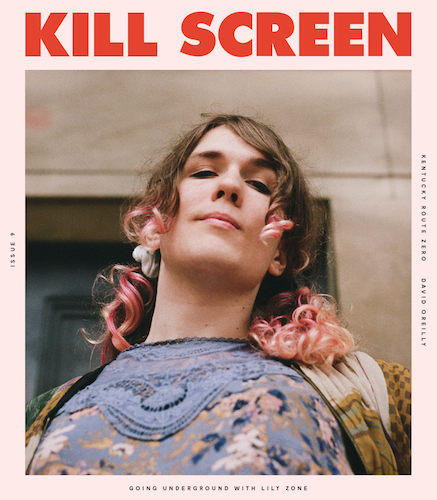
“I love me some Regi,” wrote Riot Co-CEO Marc Merrill in a now-infamous Reddit thread Monday, “but if he’s so concerned about the financial health of his players, maybe he should spend some more of the millions he has made from League of Legends on paying them instead of investing in other esports where he is losing money?”
If Valve CEO Gabe Newell’s public excoriation of James “2GD” Harding taught us anything, it was that an executive using Reddit to take potshots at a community figure never ends up sounding particularly level-headed. In this case, while attempting to refute criticism from Team SoloMid (TSM) CEO Andy “Reginald” Dinh, Merrill ended up implying that an unspecified number of LCS team owners were “bad guys.”
Using Reddit to take potshots at a community figure never ends up sounding particularly level-headed.
“Regi is one of the generally ‘good guy’ team owners,” he wrote, “but there is still a long way to go to help get all of our owners into a better state where the balance of power between players and owners is a bit more equitable.”
(Merrill subsequently amended his post, but not before approximately six trillion screenshots had already been taken and posted on Twitter.)
The statement on the player/owner relationship makes sense coming from someone whose LinkedIn bio states “Our mission at Riot Games is [to] be the most player-focused online game company in the world.” For the professional League of Legends player, it’s been a great year. Salaries are way up, as caster and ex-team owner Christopher “MonteCristo” Mykles notes in a breathless forty-minute video responding to Merrill’s remarks:
2016 marked the entry of several new and extremely well-funded teams into the LCS arena, including NRG (co-owned by Shaquille O’Neal), Echo Fox (owned by Rick Fox, another basketball guy), and Immortals (funded by a team of investors including the co-owner of the Memphis Grizzlies). According to Mykles, these teams aren’t currently making a profit off LCS; instead, they’re investing huge, with sky-high player salaries, to lay a foundation to capitalize on esports in the future. Meanwhile, ‘traditional’ sponsor-funded teams like TSM, which lack the deep pockets of venture capital firms and NBA all-stars, are struggling to retain players and turn a profit.
Considering the fact that Mykles’ team has been jettisoned from LCS, it is unsurprising that he would take such a critical view of Riot, but on Tuesday his statements were largely corroborated by a lengthy post from Reginald himself.
“Based on Marc’s comment, it feels like there’s a belief at Riot that team owners make a lot of money off LCS and invest it into other esports, but that is far from the truth,” wrote Dinh, going on to recount his long history of support for and investment in competitive League of Legends.
In his post, Dinh states that he is not in fact making significant money from League, because third-party sponsorship revenue and funding from Riot have remained flat while player salaries and other expenses have skyrocketed. He blames stagnant sponsorship revenue on Riot’s restrictive policies: limiting the times and places that sponsor logos can be displayed, setting a rigorous schedule that prevents players from participating in external fund-raising activities, and propagating a relegation system that makes it riskier for sponsors to invest. He also has harsh words on the subject of Riot’s alleged stinginess:
“I’ve increased my player salaries more significantly in the past year, but LCS player stipends have been frozen. Combined with the fact that LCS doesn’t share sponsorship revenue, streaming revenue or even give a percentage to the World Champions for their team skins, I think that it’s unfair to imply that I’m greedy.”
Dinh even suggests that Valve’s Counter-Strike: Global Offensive (CS:GO) is far more lucrative than League:
“While I continued to make bigger investments into LoL, other LCS team organizations invested into CS:GO early and made more money for players in one year from CS:GO stickers than Riot paid them in three years of stipends and icon sales combined, and that game is only a fraction of the size of LoL.”
There’s no evidence that they’re bad for esports as a whole.
The stickers he refers to are a profit-sharing measure implemented by Valve, allowing fans to purchase in-game insignias from their favorite teams and affix them to their weapons. Sticker revenue is split between Valve and the teams in question.
Merrill and Riot have a certain amount of wiggle room to push back on the demands of traditional team owners; after all, there’s no shortage of investors eager to dump money into esports these days. And while investor-funded organizations are certainly bad for the comparatively tiny TSMs and Cloud 9s of the world, there’s no evidence that they’re bad for esports as a whole. But if Riot ends up completely alienating long-standing, fan-favorite organizations like TSM, they do so with a certain degree of risk. If the scene doesn’t grow as fast as the venture capitalists expect, and the massive investments dry up as suddenly as they appeared, it’s possible the folks at League of Legends headquarters will find themselves wishing they’d stayed on Reginald’s good side.
Update: Marc responded to Dinh’s response.
Update 2: Dinh responded to Marc’s response to Dinh’s response.










